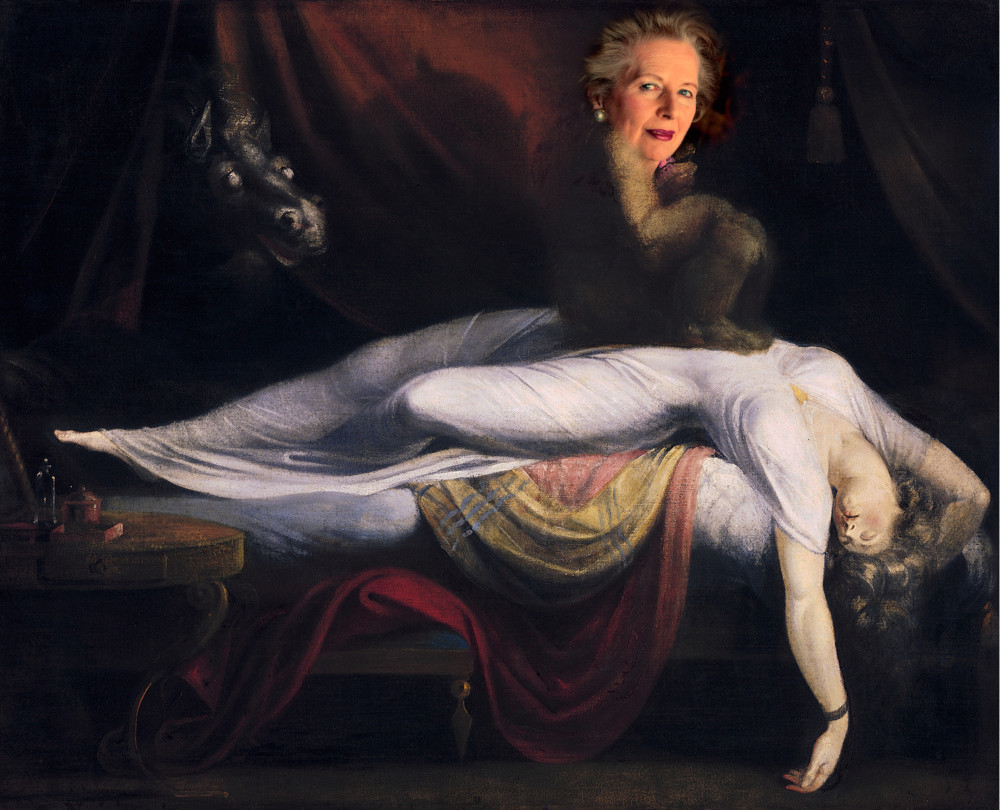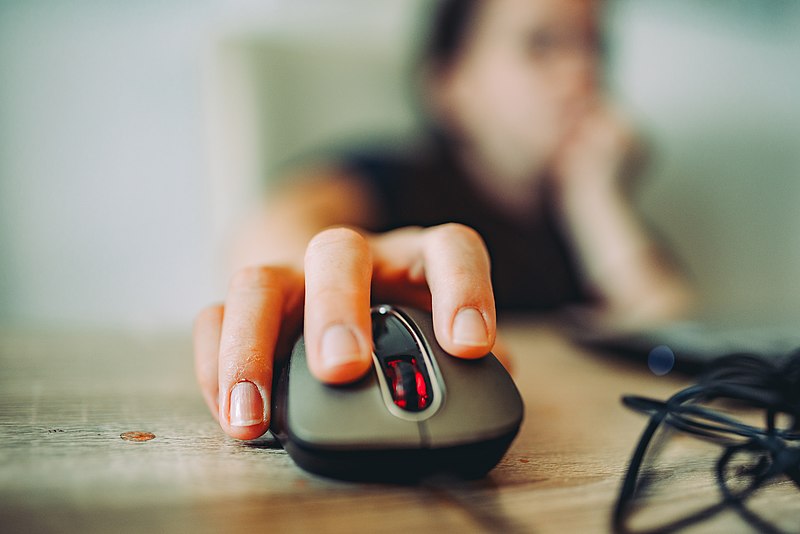
The politicization of covid started early, with the "noble lie" that masks wouldn't prevent the spread of the disease, a lie told in a bid to prevent panic-shoppers buying up all the N95s that health workers needed.
nytimes.com/2020/03/17/opi… 1/
nytimes.com/2020/03/17/opi… 1/

If you'd like an unrolled version of this thread to read or share, here's a link to it on pluralistic.net, my surveillance-free, ad-free, tracker-free blog:
pluralistic.net/2021/11/10/elf… 2/
pluralistic.net/2021/11/10/elf… 2/
Safety talk is often a pretext: sometimes paternalistic, sometimes authoritarian and sometimes (ironically) anti-regulatory.
The British "health and safety gone mad" panic of the 1990s is a perfect microcosm of how this works. 3/
The British "health and safety gone mad" panic of the 1990s is a perfect microcosm of how this works. 3/
After a revolution in evidence-based public safety measures improved the daily lives of millions of people, puny authoritarians and grifters of every stripe realized that safety talk was a powerful weapon for bossing people around while lining their pockets. 4/
In their 2014 book "In the Interest of Safety," @senseaboutsci's Tracey Brown and Michael Hanlon document the way that bosses, consultants and cranks used "health and safety" as an unquestionable justification to make other people do their bidding.
memex.craphound.com/2014/09/08/in-… 5/
memex.craphound.com/2014/09/08/in-… 5/
Safety talk enabled both the theater manager who insisted that the audience at Peter Pan wear helmets during the wire-flying scenes and the tube-platform supervisor who banned cleaners from wearing warm hats in the winter months ("so they can hear oncoming trains"). 6/
It also gave rise to a class of consultants who made outlandish claims about safety requirements that led to lucrative contracts. 7/
The most bizarre example was the grifters who went around graveyards *kicking over old tombstones* to prove they could topple on a mourner. They then sold special tombstone-bracing services up and down the nation. 8/
"Health and safety" is still a punchline in the UK, thanks to all of this nonsense - despite the fact that *none* of this was the result of *actual* health and safety regulation. Rather, it was an unquestionable, all-purpose excuse wielded by the greedy and foolish. 9/
The major casualty of this abuse wasn't the millions spent on tombstone reinforcement or the absurdity of wearing a helmet for Peter Pan's flight - it was the discrediting of the very idea of evidence-based safety. 10/
You can trace a straight path from turning health and safety into a punchline to the Grenfell fire and the national epidemic of lethally flammable building cladding. 11/
Every time someone brought up the possibility that it might be a bad idea to sheathe high-rises in, basically, solid-state gasoline, they were jeered at as "health and safety" weirdos. 12/
But long before the British health-and-safety wheeze, American corporate apologists were weaponizing safety talk, led by Sam Peltzman an economist at (where else) the University of Chicago. 13/
In 1975, Peltzman published a landmark study that purported to finally validate the #RiskCompensation hypothesis: the idea that when you make things safer, people engage in riskier behavior, with overall safety declining as a result.
journals.uchicago.edu/doi/abs/10.108… 14/
journals.uchicago.edu/doi/abs/10.108… 14/
Peltzman's paper was intended as an evidence-based rejoinder to seatbelt laws - laws that auto manufacturers vehemently opposed. 15/
But there was just one problem: Peltzman's paper was "riddled with errors" and Peltzman did not perform "rudimentary checks on the validity of his model."
mdpi.com/2313-576X/2/3/…
Peltzman was wrong, but he was also useful. 16/
mdpi.com/2313-576X/2/3/…
Peltzman was wrong, but he was also useful. 16/
As @timrequarth writes in @slate, Peltzman's ideas failed to stop seatbelts, but the did lead to widespread motorcycle helmet law repeals - and a wave of fatalities and maimings.
slate.com/technology/202… 17/
slate.com/technology/202… 17/
Risk compensation does occur in very narrow and specific circumstances, but all the studies purporting to show that it is a widespread, predictable outcome of any safety regulation have failed to replicate. 18/
But just as health-and-safety panic served a useful purpose, so does risk compensation fraud: it serves as an unassailable justification for both big-business-freindly deregulation and authoritarian sex-negativity. 19/
Risk compensation helps corporations that want to avoid retooling to comply with safety measures, such as fight child safety caps on medicine:
degruyter.com/document/doi/1…
More prominently, it's used as empirical facewash for blue-nose moralizing. 20/
degruyter.com/document/doi/1…
More prominently, it's used as empirical facewash for blue-nose moralizing. 20/
Risk compensation was used to fight the Pill ("it'll make women promiscuous"):
washingtonpost.com/archive/lifest…
HPV vaccines ("they'll make kids promiscuous"):
content.time.com/time/nation/ar…
Syphilis treatment ("they'll make everyone promiscuous"):
pubmed.ncbi.nlm.nih.gov/4626515/ 21/
washingtonpost.com/archive/lifest…
HPV vaccines ("they'll make kids promiscuous"):
content.time.com/time/nation/ar…
Syphilis treatment ("they'll make everyone promiscuous"):
pubmed.ncbi.nlm.nih.gov/4626515/ 21/
PrEP ("it'll make gay and bisexual men promiscuous"):
onlinelibrary.wiley.com/doi/full/10.10…
The morning-after pill ("it will encourage unprotected sex"):
theguardian.com/world/2006/nov… 22/
onlinelibrary.wiley.com/doi/full/10.10…
The morning-after pill ("it will encourage unprotected sex"):
theguardian.com/world/2006/nov… 22/
Risk compensation is also the excuse of choice to fight drug-related harm reduction, especially needle exchanges ("if we give addicts clean needles, they'll shoot up more"):
ncbi.nlm.nih.gov/pmc/articles/P… 23/
ncbi.nlm.nih.gov/pmc/articles/P… 23/
Risk compensation and health-and-safety panic are both part of a safety nihilism campaign that serves big business's deregulatory agenda, and the cruel moralizing of right wing religious maniacs, the traditional turkeys-voting-for-Christmas coalition. 24/
But risk compensation is especially salient in these covid days, where it's being used to fight rapid testing ("encourages risky behavior").
The problem isn't the difficulty of formulating good health and safety policy, though that difficulty is real. 25/
The problem isn't the difficulty of formulating good health and safety policy, though that difficulty is real. 25/
The problem is that, having ruled health policy to be above question or scrutiny, we invite paternalism and authoritarianism. Whether it's a noble lie, a grift, a moral panic, or a deregulatory fraud, abuse of safety rhetoric always comes to light. 26/
When it does, it discredits the whole project of evidence-based safety.
And *that* is a truly unsafe situation. 27/
And *that* is a truly unsafe situation. 27/
• • •
Missing some Tweet in this thread? You can try to
force a refresh















